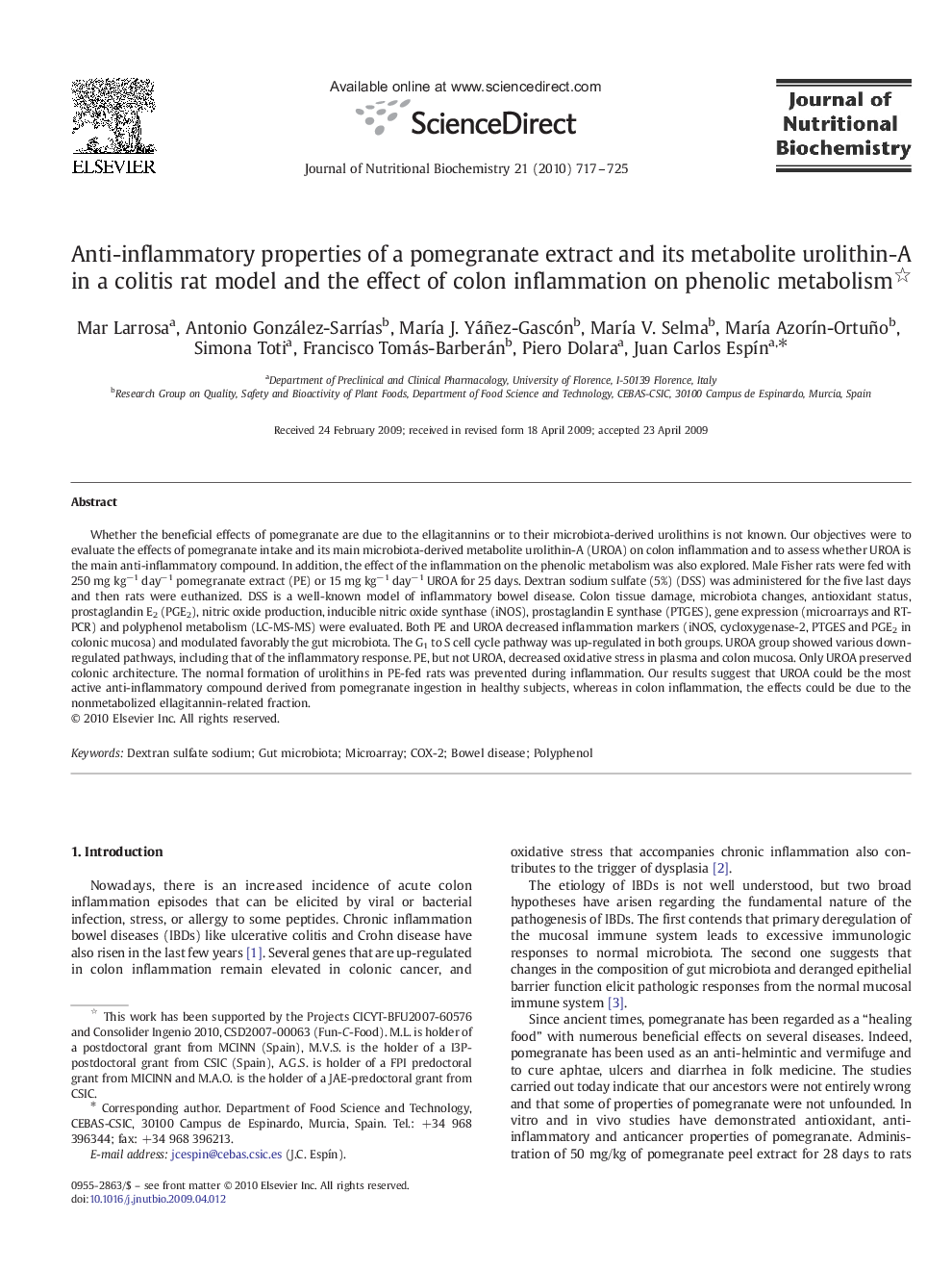| Article ID | Journal | Published Year | Pages | File Type |
|---|---|---|---|---|
| 1990156 | The Journal of Nutritional Biochemistry | 2010 | 9 Pages |
Whether the beneficial effects of pomegranate are due to the ellagitannins or to their microbiota-derived urolithins is not known. Our objectives were to evaluate the effects of pomegranate intake and its main microbiota-derived metabolite urolithin-A (UROA) on colon inflammation and to assess whether UROA is the main anti-inflammatory compound. In addition, the effect of the inflammation on the phenolic metabolism was also explored. Male Fisher rats were fed with 250 mg kg−1 day−1 pomegranate extract (PE) or 15 mg kg−1 day−1 UROA for 25 days. Dextran sodium sulfate (5%) (DSS) was administered for the five last days and then rats were euthanized. DSS is a well-known model of inflammatory bowel disease. Colon tissue damage, microbiota changes, antioxidant status, prostaglandin E2 (PGE2), nitric oxide production, inducible nitric oxide synthase (iNOS), prostaglandin E synthase (PTGES), gene expression (microarrays and RT-PCR) and polyphenol metabolism (LC-MS-MS) were evaluated. Both PE and UROA decreased inflammation markers (iNOS, cycloxygenase-2, PTGES and PGE2 in colonic mucosa) and modulated favorably the gut microbiota. The G1 to S cell cycle pathway was up-regulated in both groups. UROA group showed various down-regulated pathways, including that of the inflammatory response. PE, but not UROA, decreased oxidative stress in plasma and colon mucosa. Only UROA preserved colonic architecture. The normal formation of urolithins in PE-fed rats was prevented during inflammation. Our results suggest that UROA could be the most active anti-inflammatory compound derived from pomegranate ingestion in healthy subjects, whereas in colon inflammation, the effects could be due to the nonmetabolized ellagitannin-related fraction.
